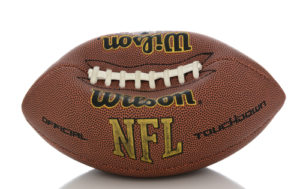Deflate-Gate Revisited: Court Strikes Down NFL Suspension of Tom Brady
In a legal decision heard round the sports world, New York federal judge Richard Berman yesterday nullified the four-game suspension the NFL had previously imposed on New England Patriots superstar Tom Brady. The punishment was meted out for Brady’s alleged involvement in deflating the footballs he used to beat the Indianapolis Colts in last season’s AFC Championship Game. But according to Judge Berman, Brady did not get a fair shake in his ability to challenge the NFL’s decision. Nor did he get any real opportunity to challenge the underlying “independent” investigation which found it “more probable than not that Brady was at least generally aware” some kind of tampering had been in play.
Notably, the decision stayed far away from ruling, or even commenting on the merits. In fact, Judge Berman made it clear that “an arbitrator’s factual findings are generally not open to judicial challenge, and we accept the facts as the arbitrator found them.” In this case, the arbitrator — NFL Commissioner Roger Goodell — and the NFL were one in the same. Rather than question the substance of the charges against Brady, the judge focused exclusively on the process that led to the NFL/arbitration finding that Brady “indisputably” acted in a manner “detrimental to the integrity” of the game. On that score, Judge Berman found the NFL and more pointedly, Roger Goodell in his role as judge and jury, failed miserably.
Here are the three central failures to which Judge Berman pointed. First, the NFL/Goodell did not provide adequate notice to Brady that he could receive a four-game suspension for “general awareness” of ball deflation by others or for failing to cooperate with an ensuing investigation. The judge was particularly troubled the NFL based Brady’s punishment on that imposed for using performance enhancing drugs. Noting a complete lack of “scientific, empirical, or historical evidence of any comparability” between doping and Brady’s alleged transgressions, Judge Berman concluded no player could have been aware that the discipline for each would be the same: “Because there was no notice of a four-game suspension in the circumstances presented here, Commissioner Goodell may be said to have dispensed his own brand of industrial justice.”
Second, the NFL/Goodell did not allow Brady to examine NFL General Counsel Jeff Pash, the co-lead of the underlying investigation of Brady’s alleged wrongdoing. According to Judge Berman, this was “fundamentally unfair” given Pash’s central role in the finding that Brady had participated in a tampering scheme. Among other things, it foreclosed Brady from exploring whether the NFL investigation was truly independent and what improper influence the NFL might have had on the outcome. What Pash knew constituted “evidence plainly pertinent and material to the controversy,” but Brady was denied the right to obtain this evidence.
Third, the NFL/Goodell improperly denied Brady access to the NFL’s investigative files without which he had no reasonable opportunity to challenge the NFL’s ultimate findings of misconduct. The judge was particularly troubled by the dual and seemingly conflicting roles the law firm Paul, Weiss played for the NFL. The firm not only led the whole tampering investigation which was supposed to be independent. It also served as the NFL’s counsel during the arbitration. Judge Berman seriously questioned this “change in roles” which he felt may have afforded the NFL “greater access to valuable impressions, insights, and other investigative information not available to Brady.”
Based on these “significant legal deficiencies,” Judge Berman readily pushed aside the deference normally afforded arbitral decisions and vacated the four-game suspension of Brady. “The deference due an arbitrator does not extend so far as to require a district court to countenance, much less confirm, an award obtained without the requisites of fairness and due process.” And a complete lack of fairness and due process is exactly what Judge Berman found in the NFL/Goodell’s treatment of Brady in the arbitration of this controversy.
So what does this all mean for the future Hall of Famer? He will be back in the driver’s seat leading the Patriots against the Steelers in next week’s NFL opener. More importantly, remaining suspicions aside, by all accounts he is largely redeemed from the taint that had threatened his largely unblemished legacy as one of the NFL’s all-time greats.
As for the NFL, this is just the latest in a string of losses for an ever-battered league that cannot seem to get a grip on how it should police itself. As Michael Powell of the New York Times so poetically put it in his take on the story: the NFL’s “record has amounted to an archaeological dig of maledictions and malefactions.” It is well past the time for the NFL to figure out a better system for keeping its house in order. With real issues affecting player health and safety, there is a lot more at stake here than a few under-inflated footballs.
Tagged in: Misrepresentations,
 By
By